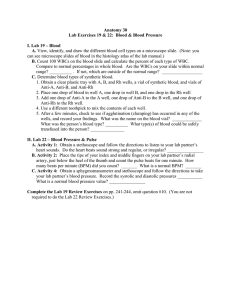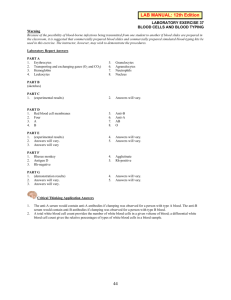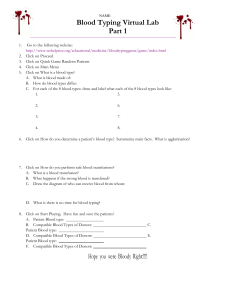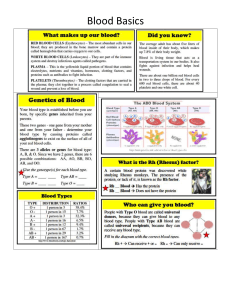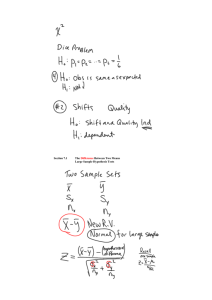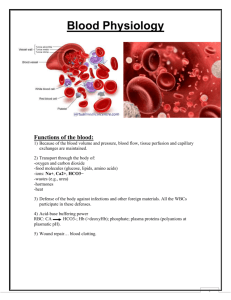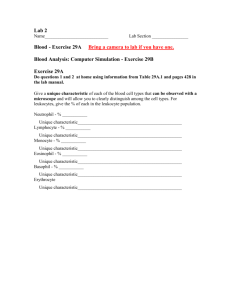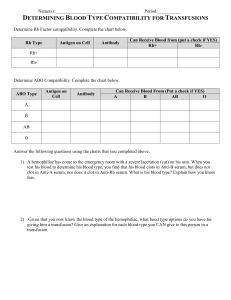Anatomy & Physiology 34B I. Lab 29A – Blood
advertisement
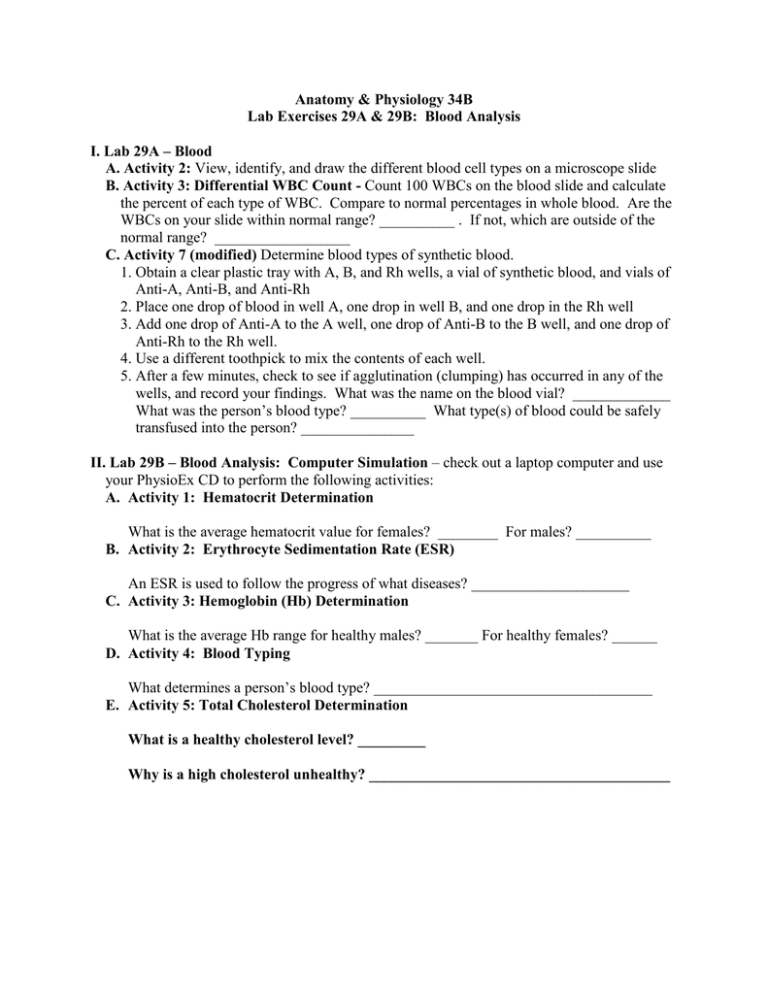
Anatomy & Physiology 34B Lab Exercises 29A & 29B: Blood Analysis I. Lab 29A – Blood A. Activity 2: View, identify, and draw the different blood cell types on a microscope slide B. Activity 3: Differential WBC Count - Count 100 WBCs on the blood slide and calculate the percent of each type of WBC. Compare to normal percentages in whole blood. Are the WBCs on your slide within normal range? __________ . If not, which are outside of the normal range? __________________ C. Activity 7 (modified) Determine blood types of synthetic blood. 1. Obtain a clear plastic tray with A, B, and Rh wells, a vial of synthetic blood, and vials of Anti-A, Anti-B, and Anti-Rh 2. Place one drop of blood in well A, one drop in well B, and one drop in the Rh well 3. Add one drop of Anti-A to the A well, one drop of Anti-B to the B well, and one drop of Anti-Rh to the Rh well. 4. Use a different toothpick to mix the contents of each well. 5. After a few minutes, check to see if agglutination (clumping) has occurred in any of the wells, and record your findings. What was the name on the blood vial? _____________ What was the person’s blood type? __________ What type(s) of blood could be safely transfused into the person? _______________ II. Lab 29B – Blood Analysis: Computer Simulation – check out a laptop computer and use your PhysioEx CD to perform the following activities: A. Activity 1: Hematocrit Determination What is the average hematocrit value for females? ________ For males? __________ B. Activity 2: Erythrocyte Sedimentation Rate (ESR) An ESR is used to follow the progress of what diseases? _____________________ C. Activity 3: Hemoglobin (Hb) Determination What is the average Hb range for healthy males? _______ For healthy females? ______ D. Activity 4: Blood Typing What determines a person’s blood type? _____________________________________ E. Activity 5: Total Cholesterol Determination What is a healthy cholesterol level? _________ Why is a high cholesterol unhealthy? ________________________________________
